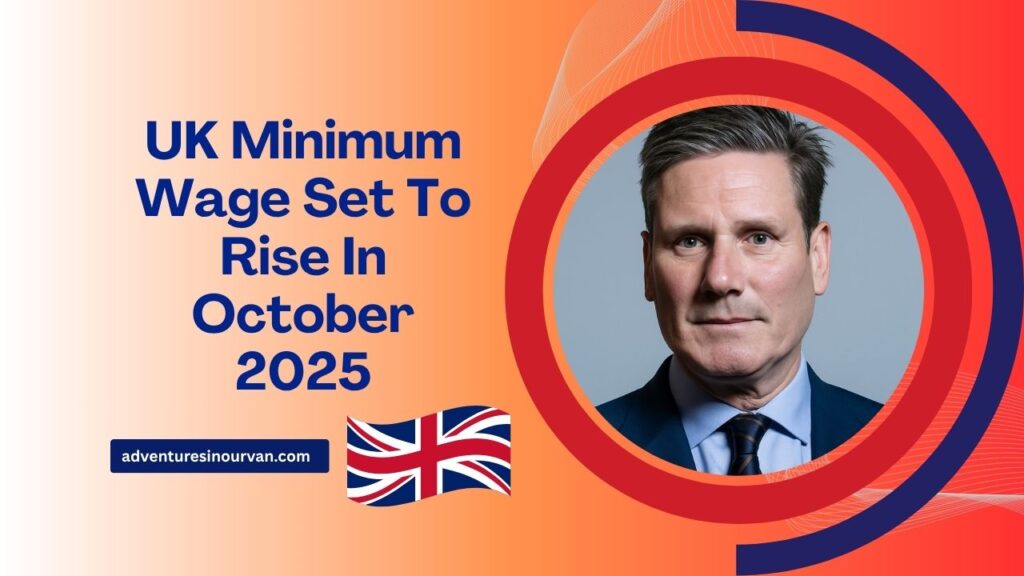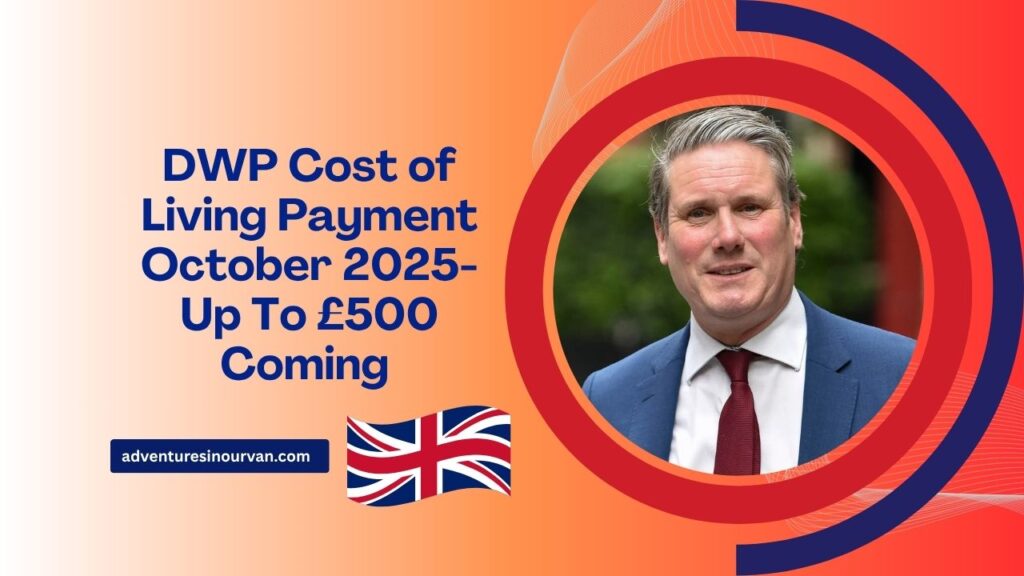The UK Minimum Wage Rise October 2025 is officially confirmed, offering financial relief to millions of workers. With the cost of living remaining a significant concern, this increase in worker pay rates is a step forward in improving financial stability and helping employees keep pace with inflation.
From apprentices to adult workers over 23, everyone will see a boost in their hourly pay.
This article breaks down the new UK minimum wage rates, explains who benefits, and discusses the broader economic implications for both workers and employers.
New Minimum Wage Rates from October 2025
The UK government has released an updated minimum wage structure that comes into effect from October 2025. Below is a table showing the comparison between the 2024 and 2025 rates across all categories:
| Worker Category | Previous Rate (2024) | New Rate (2025) |
|---|---|---|
| National Living Wage (23+) | £10.42 | £11.05 |
| Ages 21–22 | £10.18 | £10.80 |
| Ages 18–20 | £7.49 | £8.00 |
| Under 18 | £5.28 | £5.60 |
| Apprentices | £5.28 | £5.60 |
This change marks a significant increase, especially for younger workers, offering some up to a 51p per hour raise. Over a full-time schedule, that could translate into £80–£100 extra per month.
Why the October 2025 Increase Matters
The UK minimum wage increase is part of a broader government strategy to combat inflation and ensure fair compensation for workers. Over recent years, inflation has affected housing, food, energy, and transport costs, making it harder for low-income households to make ends meet.
The new worker pay rates aim to:
- Offset the impact of inflation
- Increase disposable income
- Improve living standards
- Encourage workforce participation, especially among younger people
Higher wages also contribute to the local economy through increased consumer spending, supporting small businesses and services.
Impact on Workers and Employers
For Employees:
- More take-home pay from October 2025
- Stronger financial resilience
- Higher motivation and morale
- Better budget alignment with current expenses
For Employers:
- Adjusting payroll systems and budgeting for increased costs
- Reviewing contracts and age-related pay categories
- Potential improvements in staff retention and productivity due to improved employee satisfaction
Small businesses may initially feel the strain, but the government anticipates that increased consumer spending will help balance operational costs in the long run.
How to Make the Most of the Increase
To ensure you benefit fully from the UK Minimum Wage Rise October 2025, follow these steps:
- Check your payslip after October 1, 2025, to confirm the correct rate is applied.
- Update your status if you’ve moved into a new age bracket that qualifies for a higher rate.
- Use the increase wisely by budgeting for savings or essential expenses.
If you believe you are being underpaid, consult your HR department or contact ACAS (Advisory, Conciliation and Arbitration Service) for guidance.
The upcoming UK minimum wage rise in October 2025 is a welcome development for workers navigating the challenges of rising living costs. With across-the-board increases for all categories, this new structure reflects a commitment to fair compensation and economic balance.
Whether you’re a full-time employee, apprentice, or part-time worker, staying informed and verifying your pay is essential to making the most of this new pay structure.
FAQs
When will the new UK minimum wage rates take effect?
The new rates will apply starting October 1, 2025, and will affect all eligible employees across the UK.
Who is eligible for the new rates?
All workers legally entitled to the National Minimum Wage or National Living Wage, including apprentices and part-time workers.
Will employers automatically apply the new rates?
Yes, employers are legally required to update pay according to the new structure. Employees should verify their payslips to ensure accuracy.



